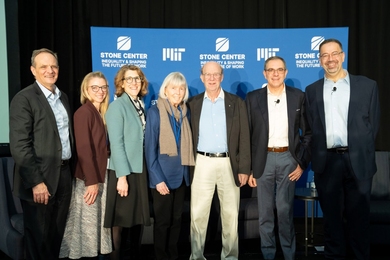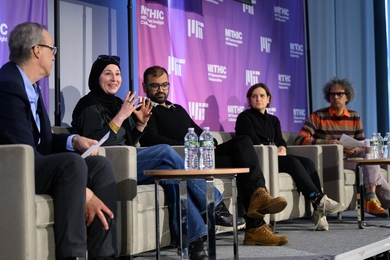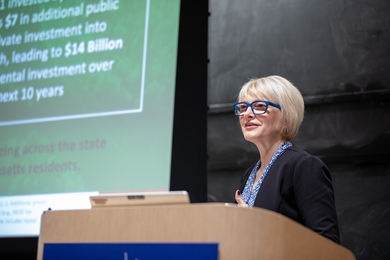A substantial majority of Chapter 40B zoning override cases in the Boston area are approved by town zoning boards in a manner acceptable to developers, but many are not being built, according to a new study by the Housing Affordability Initiative at the MIT Center for Real Estate. In the wake of press stemming from work of the inspector general and complaints by towns and developers, the MIT study casts fresh light on how the process of permitting mixed-income housing actually works.
Key findings from this major undertaking, released today by the MIT Housing Affordability Initiative, stem from an exhaustive effort to follow requests for 40B overrides--comprehensive permit applications--from birth to final outcome. Chapter 40B is the law that allows developers to override local zoning if they agree to sell or rent 25 percent of the housing units at prices that are affordable to moderate-income households. It is a process that can produce multifamily housing in a strong housing market like that of 2000 to 2005, because the market-rate dwellings effectively subsidize the modest-income ones.
According to MIT lead author Professor Lynn Fisher, "In an atmosphere in which developers are often seen as making unreasonable demands and towns are often seen as resisting any multifamily development, the Center for Real Estate's year-long effort answers key questions and raises even more."
Even though towns and developers often find a way to settle on a permit, only 55 percent of the projects get built. According to Fisher, "Setting aside the most recent permits as simply not having enough time to get to construction yet, the puzzle still remains. The towns and developers have done their jobs, but why aren't the projects being built? The stories we are documenting vary. Additional litigation can occur between towns and developers, and abutters may file suits against the projects. Some projects are permitted and then sold, which entails a time delay. And the market has changed such that some parties may be waiting a while."
Future research will focus on explaining the rate of construction and especially on additional forms of litigation facing 40B projects. Preliminary evidence suggests that litigation in other courts besides the Housing Appeals Committee (HAC) occurs in about 13 percent of the applications, which may help explain some of the delays in bringing these projects under construction.
While a majority of permit applications are approved, a quarter of them result in an appeal to the HAC, the administrative court established by 40B legislation to hear developers' appeals of zoning board of appeals (ZBA) decisions. Of the total cases brought to the HAC, nearly 75 percent result in a modification of the ZBA's original decision. It takes a lot of money on both sides to litigate a claim. The MIT study finds that "it takes on average 17 months from the time of the ZBA decision until the appeal is settled, and further issues such as abutters' claims often arise even after the settlement." And this follows an average of eight months of consideration by the ZBA.
The MIT study also finds that of the cases that are approved (with conditions) by the ZBA and then appealed, less than 20 percent actually result in a decision by the HAC. While a few cases are dismissed (upholding the ZBA's decision), most result in settlements between the town and the developers. "The fact that there are so few decisions is consistent with other studies of litigation which find that most lawsuits settle 'on the courthouse steps' and never reach trial," says Fisher.
On the other hand, developers appeal 90 percent of all ZBA denials, and the towns only issue an outright denial about 12 percent of the time. Of those denied, about 40 percent reach an HAC decision. Overall, about one-third of the applications denied by ZBAs and then appealed result in a final rejection of the developer's application.
The study also focuses on differences among projects. Rental projects, which have two and a half times as many housing units as a typical condo project, are twice as likely to be denied by ZBAs. Thus rental projects account for 45 percent of appeals. While rental projects are larger than condo ones, the total number of units represented by rental projects is similar since many more condo projects are proposed.





